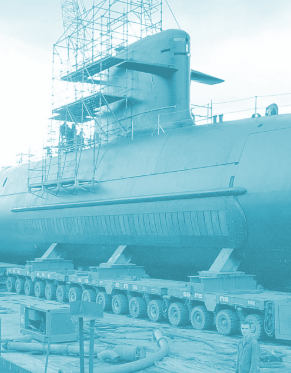Sluggish sub scheme forecast
 Australia’s submarine boss says the AUKUS project will be slow and expensive.
Australia’s submarine boss says the AUKUS project will be slow and expensive.
The AUKUS project, a trilateral security pact between Australia, the United Kingdom, and the United States, is predicted to face numerous challenges and setbacks according to Vice Admiral Jonathan Mead, head of Australia's Submarine Agency (ASA).
Speaking at the Indian Ocean Defence and Security Conference in Perth, Mead emphasised the importance of strategic patience as the nations embark on the long and expensive process of developing nuclear-powered submarines.
“We have a long road ahead,” Mead said.
“Developing these high-end apex capabilities necessary for effective deterrence is not easy, is not quick, nor is it cheap. There will be setbacks, but we need to have the confidence to see this through a generational commitment.”
However, Mead also highlighted the project's potential to shift the military balance of power in the Indo-Pacific region.
He urged all involved to remain patient and committed, noting that the progress made so far demonstrates Australia's capability to deliver on this ambitious programme.
The Australian government's investment in the project includes a significant financial commitment to both the UK and US submarine industrial bases.
In March, the Albanese government confirmed it would contribute AU$4.6 billion to the UK for design work on the new SSN-AUKUS fleet and to expand a Rolls-Royce plant responsible for building nuclear reactors for the submarines.
British Admiral Ben Key, who also spoke at the conference, defended Australia's financial contributions to the UK, arguing that it was a necessary investment for the future of both nations.
“The reactor itself is not going to be built here in Australia, so it's not unreasonable to expect and ask Australia to make some of the up-front investment that allows the United Kingdom to then build the reactor house,” Key said.
The federal government is also providing similar financial support to the US to enhance its submarine industrial base before delivering second-hand Virginia-class submarines to Australia.
Still, some analysts say that the involvement of the United Kingdom in the AUKUS project brings substantial benefits to Australia, including access to UK expertise in submarine design and construction, and an enhanced collective bargaining power in Washington.
The UK's participation could ensure continuity of production, critical future submarine capability, and access to advanced US technologies.
However, the project's possible success is not without its risks.
The UK faces its own challenges, including competing demands for its other submarine classes, strategic priorities in Europe, cost overruns, and workforce development issues.
The newly elected UK Labour Party's approach to the Indo-Pacific region will also play a crucial role in shaping the future of AUKUS.








 Print
Print